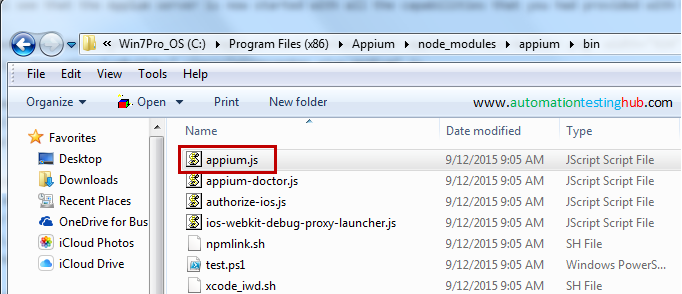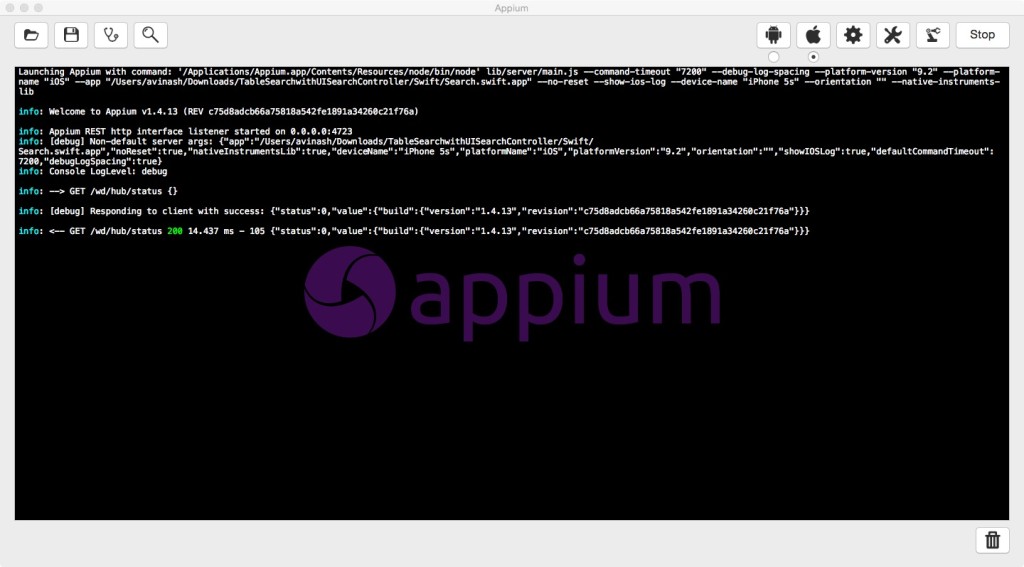

So the solution, start your server programmatically. We don’t want you getting disturbed on your off hours just to start the server so that your scheduled tests can execute. We don’t want to be manually starting and stopping the server every start and end of the test. As much as possible we should try to avoid manual intervention in our test execution. That goes the same with starting our server. The thing is we are automating our tests because we want to be efficient and avoid doing the same task over and over again.

And I also started with this workflow since most tutorials will only show this step. In fact this is what I do when I open the appium inspector to locate my elements. Likewise, any WebElements in the script result will be returned to the client as WebElement JSON objects.There is actually nothing wrong in doing this. JSON objects that define a WebElement reference will be converted to the corresponding DOM element. The final argument will always be a callback function that must be invoked to signal that the script has finished.Īrguments may be any JSON-primitive, array, or JSON object. The function will be invoked with the provided args array and the values may be accessed via the arguments object in the order specified. The script argument defines the script to execute in the form of a function body. If an unload event is fired while waiting for a script result, an error should be returned to the client. The value to this callback will be returned to the client.Īsynchronous script commands may not span page loads. The executed script is assumed to be asynchronous and must signal that is done by invoking the provided callback, which is always provided as the final argument to the function.


 0 kommentar(er)
0 kommentar(er)
